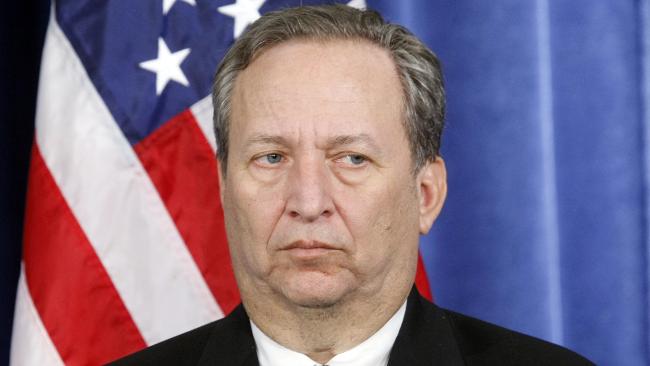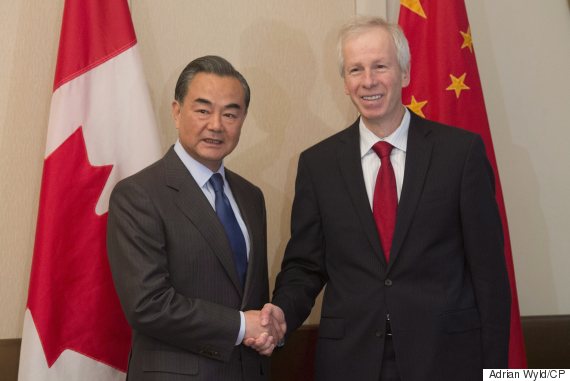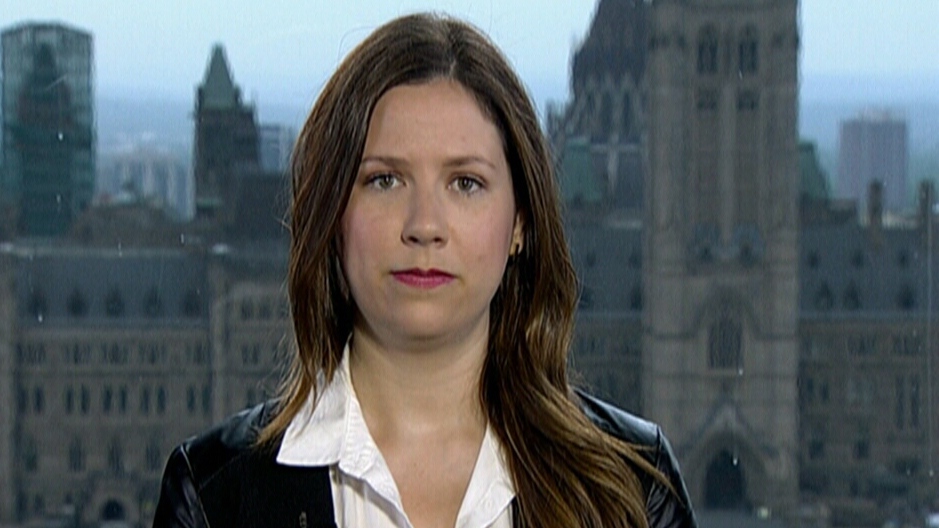Once again, Precious Dollar reports on post-modern economic (and other) values.
One academic game that can be played by almost anyone is to find the start date for post-modern society. While some are very general, Charles Jencks proposes 1972-07-15 at 15:32. It is based on the demolition of the Pruitt-Igoe brutalist housing complex in St Louis, Missouri. Another date, favored by some economists is 1971-08-13, the day Richard Nixon ended the last remains of a Gold Standard. If the de facto end is preferred, then one should look to Franklin Roosevelt, and 1933-06-05. A characteristic of post-modern society is that the rule book has been thrown out. Everything is allowed.
Perhaps the greatest failure of the Clinton administration, was its determination to open the world to free trade, by abolishing tariff barriers. Because of their lower wages, this meant that countries in the developing world, like China, could produce and sell goods cheaper than producers in the developed world, like USA. Clinton tried to sell the American public “cheapness”, but even in the beginning, it was a hard sell.
Bill Clinton’s administration passed trade legislation that lowered trade barriers with other nations. It negotiated about 300 trade agreements with other countries. This alienated many previous supporters, including labor unions. These argued that lower tariffs and more relaxed trade barriers would eliminate American jobs. Clinton argued that free trade would allow the U.S. to increase exports, growing the American economy. He also stated a belief that free trade could result in economic and political reform in developing countries. What that reform would consist of was never discussed.

What Clinton failed to do was to place any restrictions on developing country exporters. They did not have to meet any requirements with respect to child labor, slavery, hours or work, other matters affecting working conditions, or protection of the environment. This is far from an exhaustive list. This meant that there was no level playing field. Countries that improved worker safety were penalized, while those who didn’t profited. That is, the owners of the companies profited, the workers simply had to accept their fate.
Clinton’s last Secretary of the Treasury, Lawrence Summers, stated that lowered tariffs reduced consumer prices and kept inflation low, and were technically “the largest tax cut in the history of the world.“
Fast forward to Ottawa, Canada on 2016-06-01.

Chinese Foreign Minister Wang Yi lost his temper after Amanda Connolly asked Canadian Foreign Affairs Minister Stéphane Dion a question about three touchy subjects: Hong Kong book sellers critical of Beijing that have gone missing, the country’s aggressive moves in the South China Sea, and the detention of Canadian citizen Kevin Garratt in China. “Why is Canada pursuing closer ties with China, how do you plan to use that relationship to improve human rights and security in the region, and did you specifically raise the case of the Garratts during your talks?”

After Dion answered, Wang was asked a question by Chinese state-run media CCTV news, a question that within it made accusations about foreign aggression toward China. Rather than answering, Wang attacked Connolly, through a translator, for asking about human rights.
“I have to say that your question is full of prejudice against China and arrogance where I have heard that come from and this is totally unacceptable. I have to ask whether you understand China. Have you been to China?” Wang said, then repeated familiar Communist Party of China defenses, becoming increasingly upset. He noted that Chinese law also incorporates civil rights, and ended with ,”I would like to ask you to please don’t ask questions in such an irresponsible manner and we welcome good will suggestions but we reject groundless or unwarranted accusations.”
Ryan Dunch, University of Alberta, China Institute, professor of history and classics said there is a lack of experts who understand the nuances of China. Canada has a knowledge gap that threatens to put Canada at a political and economic disadvantage, unable to protect its own interests when making deals with China.
Dunch said that Canadians need to be able to interpret what’s being said when the government of China scolds or says, ‘We’ve got human rights in our constitution.’ The same protections and legal process to ensure such rights are upheld in Canada do not exist in China, and many Canadians may not understand the difference.
Another example, Dunch said, is the Chinese government’s insistence that it is the definitive voice of every citizen, although China is a vast country with many different views and opinions. China’s current government claims, “an absolute and unlimited mandate to be the sole authoritative voice for the Chinese nation.”
“It’s important for Canadians and Canadian business to be able to develop an informed, critical perspective for understanding the statements coming from the Chinese government and the Chinese media,” Dunch said.
Charles Burton, Brock University, associate professor, notes that the Canadian government has said it intends to address concerns about human rights through trade and engagement, but does not seem to be contemplating any other actions to address human rights issues. Such a passive attitude toward Beijing and a poor understanding of it in the past is something Hong Kong is now coming to terms with. In the 1980s it was generally assumed that after China took over Hong Kong from the United Kingdom in 1997, the country would become more democratic.
Hong Kong residents, who had come to enjoy freedoms that mainland residents did not, were therefore fairly passive towards Beijing’s actions on human rights, expecting it to change. Instead, in 2014, Hong Kong saw massive street demonstrations following Beijing’s refusal to allow the region to hold completely open elections. China no longer talks about democracy as an ultimate political goal, instead referring to it as being a western ideal.
“That realization in Hong Kong I think is what is spawning the localism movement,” Burton said. “A conflict is happening because the expectations of Hong Kong people with regard to the mainland have not been fulfilled, and they were naive to think so.”
Burton said he is concerned about how Canada makes deals with China, noting that many Ottawa advisers don’t speak a Chinese language, let alone have an intimate understanding of the country. The federal government is too reliant on advice from big business more concerned with economic growth than human rights and other worries. “Any government in Canada doesn’t seem to have the sophistication to be able to engage in a China policy that satisfies both Canadians’ concern over human rights and security and our desire to grow our economy. The government just doesn’t understanding the importance of having the expertise necessary.”
“People now have a very determined attitude that our government has to represent Canadian values, and in our dealing with China we cannot compromise the things that make Canada great: our respect for human rights and rule of law,” Burton said.
A Nik Nanos poll shows 76 per cent of Canadians have a negative view of free trade with China.
Kai Nagata of the anti-pipeline group Dogwood Initiative said it’s been evident to him for some time that Canada’s politicians are willing to put Beijing’s concerns ahead of Canadians’. Dogwood Initiative wants Canadians to “stand up to China” over its demand for a pipeline and tanker port in British Columbia as a condition to start free trade talks.
He said China is dangling a free trade deal in front of the Liberal govenment and using it to get Canada to accept an “unusual amount of diplomatic abuse.” He said Ottawa’s timid response doesn’t give him hope the Liberal Government will stand up for Canadians’ concerns. “I wonder how much (China) cares about rights and title of First Nations on the west coast and how much they care about the rights of British Columbians who don’t want more oil tanker traffic through our communities.”
In January, 2016 David H Autor, David Dorn & Gordon H Hanson published The China Shock: Learning from Labor Market Adjustment to Large Changes in Trade.
China’s emergence as a great economic power has significantly changed patterns of world trade, and challenged thinking about how labor markets adjust to trade shocks. Autor et al are particularly concerned about the substantial adjustment costs and distributional consequences.
They write that these impacts are most visible in the local labor markets in which the industries exposed to foreign competition are concentrated. Here, adjustment is remarkably slow, with wages and labor-force participation rates remaining depressed (and unemployment rates remaining elevated) a full decade or more after the China trade shock started, usually regarded as 2000, the year China joined the World Trade Organization. Regions that have been hit hard, have not recovered. Workers in these industries and regions don’t go on to better jobs, or even similar jobs in different industries. Instead, they shuffle from low-paid job to low-paid job, never recovering the prosperity they had. Many end up on welfare. This is very different from earlier decades, when workers who lost their jobs to import competition usually went into higher-productivity industries, to the benefit of almost everyone.
Popular opinion seems to be exactly right about the effect of trade with China — it has killed jobs and damaged the lives of many, many Americans. Economist researchers have shown that public misgivings about free-trade reassurances have been completely justified.
Autor et al. sternly rebuke the economics profession for relying too much on theory, and not enough on evidence, when it comes to the mantra that free trade is good. Part of the problem is the definition of “good.” According to most models of trade, reducing trade barriers raises efficiency, increasing total gross domestic product. Unfortunately, efficiency says nothing about fairness. Almost any trade model shows that some people, industries and regions lose out.
If most people experience slight gains from lower import prices, and a few lose their livelihoods and have to go on welfare, economists call that a “good” outcome, because of the focus on efficiency. The public has more important concerns, regional job losses rank higher than efficiency. This makes people regard economists as callous and out of touch.
Autor et al. see economists as (stubbornly) unwilling to question benchmark theories, even when evidence contradicts them. While total national employment declined in response to trade with China, standard trade models predict that this shouldn’t happen. The authors present evidence that real-world economies are worse at adjusting to big changes than their economic models assume. It is expensive and time-consuming for workers to retrain and relocate. It takes time and money for businesses to change their business models. Evidence shows these adjustment costs overwhelming trade gains.
Autor et al. concede their warning is too late for China. Its economy is slowing and its costs are rising rapidly. No new prospective trade partners will be able to replicate anything close to the China shock. In other words, the China free trade experience is unique.
What Autor et al seem to be saying is that the initial cheapness that free trade provided American and other consumers, will soon be over. Despite this, the harm caused by the shock continues.
Concrete Economics, by Stephen S Cohen & J Bradford DeLong was also published in 2016. They suggest that economists should spend more time studying history rather than ideology. One of the main points made by Cohen & DeLong is that the American economy has been repeatedly reshaped ever since Alexander Hamilton’s first, foundational redesign.
The authors remind readers how the economy actually grew and the major role played by government in redesigning and reinvigorating it. The government not only sets the ground rules for entrepreneurial activity, but invests directly and indirectly in infrastructure.
Beginning with the contrast between Thomas Jefferson’s attempt to continue an agrarian economy, and Alexander Hamilton’s determination to shape an industrial society, through the imposition of tariffs. This encouraged the birth of New England manufacturing at the dawn of the nineteenth century. This work also looks at other pragmatic changes (not all for the better) made over time. The second transformation examined was that from slave to free labour, in the aftermath of the American Civil War. This period also looked at the concept of homesteading, and providing free land, to encourage western settlement.
One of the most critical periods in world history, came with the depression of the 1930s. Franklin Roosevelt had to find solutions to a devastated economy. The New Deal was the name of this redesign. It was needed because austerity wasn’t working! In March 1933, one third of non-farm workers were unemployed. Half of home mortgages were in default. The stock market had lost 80% of its 1929 value, farm prices had collapsed, as had house building. Car production was at 25% of pre-depression levels, banks were defaulting on depositors. Even the rich and powerful were scared and powerless. FDR rewrote the rules.
Since then rules governing the economy have been rewritten several times, including during the post-world war II period during the reign of Eisenhower. It was yet again changed by Reagan, and his conservative successors. It is important to understanding how an economy has been redesigned in the past, to provide a blueprint for how it might again be redesigned and reinvigorated for today.
The point being made here is that it is possible to makeover an economy. Economics is not sacred. It can serve different masters, although currently the elite 1% appear to be the only ones fully served. It can be changed at any time.
Remember too, that there are other values that are more important than volatile economic principle of the month. Working conditions, health and environmental concerns take precedence in most people’s minds over cheapness and free trade. Fortunately, the important values can be accommodated into any and every economic system, if there is a will to do so.
Soon cheapness will no longer be an option, and an unpleasant future may await the former middle and working classes, if they continue to allow the elite to determine how the economy is run. If economic change is to occur, one has to ask one basic question. How do you want the economic system to serve you?
http://thetyee.ca/News/2016/06/02/Why-Chinas-Foreign-Minister-Flipped-Out/
http://thetyee.ca/News/2016/06/10/Close-Canada-China-Knowledge-Gap/
http://www.nber.org/papers/w21906

